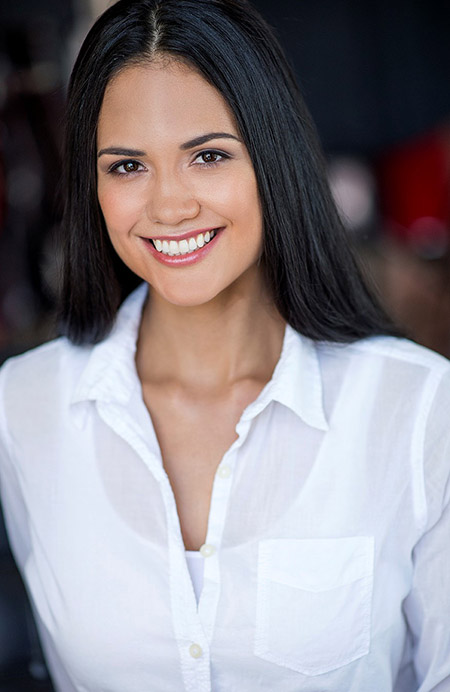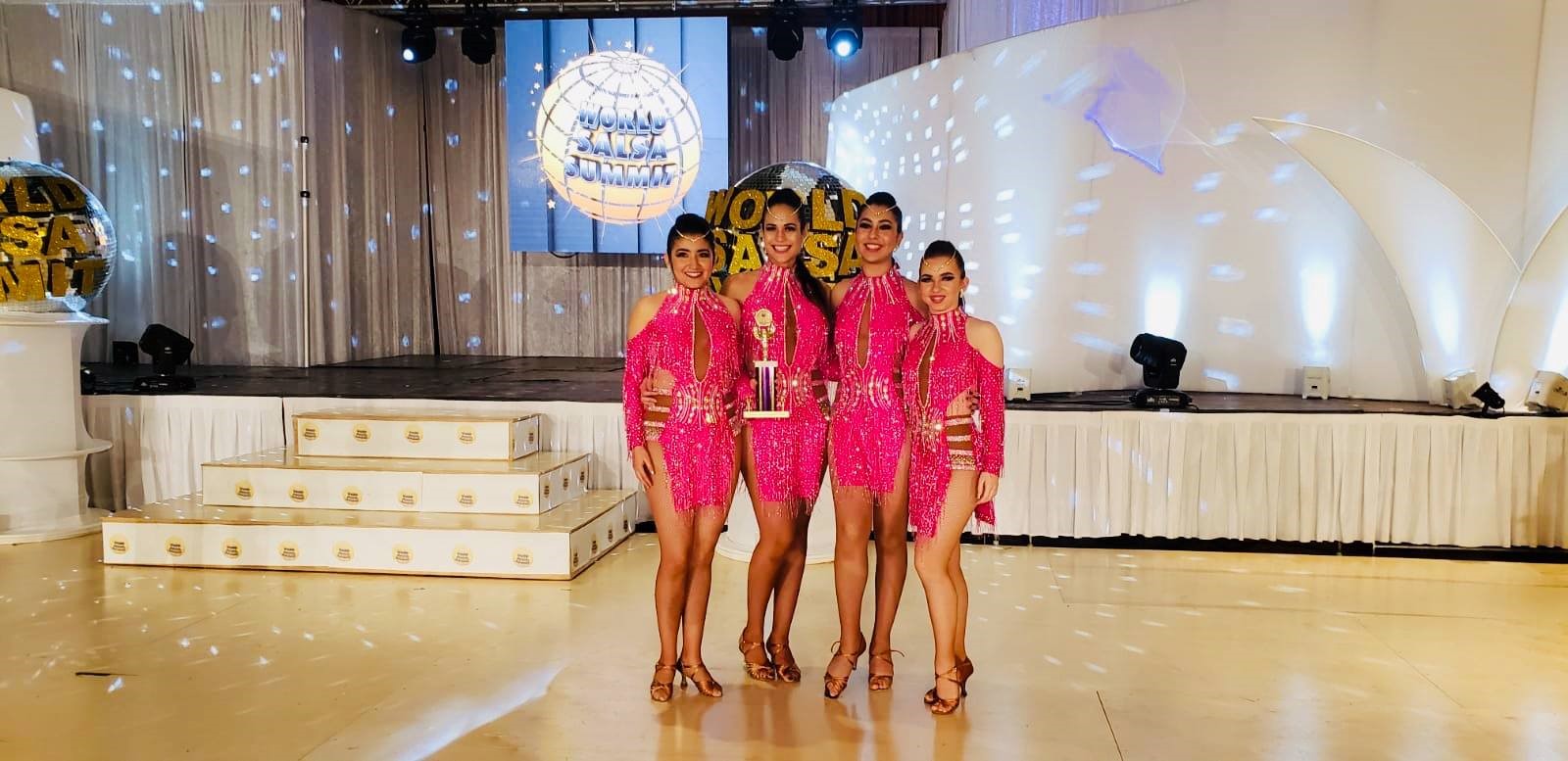
when the way grows long
and does not end
To find in the roots the answer to
this undeciphered story”
– Fonseca, ‘Vida sagrada’
Alright, these are not the actual lyrics to the Fonseca song ‘Vida sagrada’, they’re a weak English translation to the Spanish lyrics. Fonseca is a Colombian singer, and ‘Vida sagrada’ is a song about war, conflict, income inequality, and environmentalism. And, despite such heavy subject matter, it will make you want to get up and dance, just as Alejandra Botia said it would. If there’s one thing Alejandra knows (besides psychology) it’s salsa dancing.
Alejandra has only recently begun to reconnect with her Colombian roots (like salsa dancing, and Fonseca). She and her family moved to Canada when she was 12 years old, and she began quickly to detach from her country’s culture. She stopped listening to Spanish music, she started focusing entirely on the English language, and becoming integrated into Canadian culture. She became a competitive swimmer, and started the journey of lifelong learning that led her to psychology.
Alejandra is currently pursuing her PhD in Counselling Psychology at UBC. She is the Chair-Elect of the Student Section of the CPA, and she is the Student Representative on the CPA Board of Directors and will be for the duration of her term as Chair-Elect, Chair, and then Past Chair of the section. As is the custom. The way of a student in psychology is long, and does not necessarily have an end to it – but Alejandra says the experiences along the way are invaluable.
“The main reason that I wanted to become chair-elect, and be on the board, is that throughout my experiences as a student I’ve become really passionate about student engagement and professional development. It’s all about the opportunities that come up along the way that make our educational experience that much more rewarding than if you’re just going through courses and doing what you have to do.”
TAKE FIVE WITH ALEJANDRA BOTIA
What is the psychological concept that blew you away when you first heard it?
The concept of bystander apathy blew my mind in a way. It was a simple way to understand something that always seemed complex in my mind. It always seemed odd that people could see others in need of help, and yet their actions were not helpful. I was trying to understand what happened in those situations, where people just kind of froze. A better understanding of this allows me to act differently in a situation where someone needs help.
I was at a restaurant at my sister’s birthday dinner, and there was a car that crashed straight into the store across the street. Thankfully it was late at night and it was closed, so no one was inside. I remember the sound was so loud, everybody came out of the restaurant and they were standing, assessing what had happened and I think assessing whether someone needed help. But I noticed that it wasn’t everyone who got closer to see if that person needed help, and not everybody was picking up their phones to call 911. It was only a few people who were doing that, while everyone else was kind of standing still. That was a situation where I thought about bystander apathy, and how it affects our ability to help someone who might be in need.
Favourite book?
One of my favourites I’ve read recently is Untamed, by Glennon Doyle. It just speaks to so many issues that I feel passionate about. It touches on body image and eating disorders, and also on the idea of gender – becoming a woman. How much of that process in the world we think is natural, but really a lot of it is learned.
Favourite quote?
“Breathe, let go, and remind yourself that this very moment is the only one you know you have for sure” – Oprah Winfrey
I think COVID has some influence over why that’s my favourite quote right now, and also going through this PhD process where there are so many moving parts that demand my attention. I need to remember that if I don’t find ways to stay present and mindful, that time just goes by. And it goes by quite quickly.
If you could spend a day in someone else’s shoes who would it be and why?
I’ve been following Alexandria Ocasio Cortez for a while now. I would love to be in her brain for a day. I find her so confident, and eloquent, and strong. I think what I admire the most about her is how she doesn’t allow what others think of her to stop her from taking a stand on what she believes.
If you could become an expert at something outside psychology, what would it be?
I’d have to say the ocean. When I was little I wanted to be a marine biologist. I think that’s because when I was five, I thought that meant you would just get to play with dolphins all the time. But I’m still fascinated by it now, and I think if I could be an expert in ocean matters, that would be amazing.
Alejandra chose psychology because she wanted to learn how to help people by facilitating their work toward accomplishing their goals and experience higher levels of wellbeing. Over many years of study, she has become passionate about the intersection of psychology and areas of social justice. She’s extremely interested in how psychology can influence change at the societal level. Being a CPA board member has helped in this pursuit, not only as an inspiration but as an affirmation of those passions.
“One of the ways being part of these initiatives, and being on the board, has really helped me is that I can take that passion and learn how to transform it in a practical way. I’m learning how to take action, how to communicate with the rest of my team, brainstorming ideas so we can best benefit the Student Section. But also it’s teaching me to speak up, and learning that it’s okay to speak up. Bringing forward new initiatives and new ideas where there are people who will hear you, and who will support you. That’s what has made this a really wonderful experience already.”
Alejandra is not simply content with making the most of the opportunities afforded her as the Chair-Elect of the Student Section or the Student Representative on the CPA Board. She is also keenly invested in breaking new ground. For example, she and her cohort recently created the Counseling Psychology Student Association. She is proud of what her team, including Katie McCloskey , Syler Hayes, Sarah Woolgar, and Christopher Cook has accomplished in a short time. As Chair-Elect, she coordinates the mentorship program and contributes to newsletters, the adjudication of student grants, and to the annual conference by helping with the organization of the student section events.
Along with some teammates, she will soon be leading a workshop on equity, diversity, and inclusion. Alejandra’s main job, of course, is to work in collaboration with the Executive Team, continuously reflecting on how they can better serve our student community. All this while pursuing her other passions in the field of psychology – women’s leadership, vocational growth, and factors related to resilience in eating disorders. So what inspired her to take on even more on top of all this, to become as involved as she has in the future of Canadian psychology?
“I think one thing that drew me to it is that I’m becoming more and more involved in understanding matters relating to the intersection of psychology and social justice. So learning how to come prepared, how to be ready to speak about it, and stand by it without fear of what might happen, was a major part of what I hoped to gain by getting involved. And I have!”
Some time ago, Alejandra gave up competitive swimming and started to focus on salsa dancing. Despite the pandemic, she’s able to keep up with her lessons – she met her partner salsa dancing, and so the two of them can get some dancing in at home, in those fleeting downtimes where there is no school, and there are no executive duties, to which she must attend.
Re-connecting with her Colombian roots has been transformational for Alejandra. As Fonseca sings, she is finding in her roots the answer to an undeciphered story. It’s a story she’s currently writing, in a project she has tentatively called ‘Letters to Stella’. Stella was Alejandra’s grandmother, with whom she was very close. Stella would sometimes visit from Colombia, and Alejandra would sometimes go there to visit Stella. Sometimes, when she’s feeling down or overwhelmed, she thinks about Stella and what she would say to her in those moments. So she had this book idea where she’d be writing letters to Stella.
“She was always cheering me on and just so curious about my life.”
Were Stella alive today, there is no doubt she would be fascinated, and proud, of Alejandra’s life. She is pursuing her dream, she is re-connecting with Colombia, she’s dancing away in her apartment, confined by COVID with her partner. But of course, this is just the beginning of Alejandra’s life, and her journey. As Fonseca says;
“The way grows long, and does not end.”
Except that Fonseca, like Alejandra, says it in Spanish.

